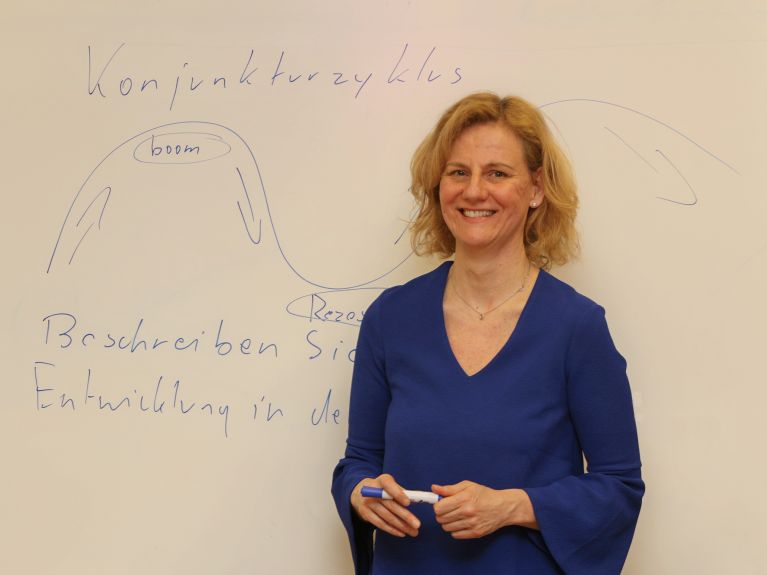Pocket money in the classroom
Do young people know enough about money? Three opinions on a school subject that is important for understanding the world.

Germany. Germany. Income, expenses, pocket money and living costs: the economic contexts of a globalized society are not easy to understand. A schoolgirl, a teacher and a volunteer coach explain why the school subject of economics is so important and what it’s about.
The coach Adrian Berger (30) from Frankfurt gives workshops at schools on business for the charitable initiative My Finance Coach.
“Economic issues are much more relevant to our lives today than they used to be. It’s therefore important that young people in particular realize how much we’re in the midst of financial exchange on a daily basis. For example, if you own a cell phone, you should know what it means to have a two-year contract which you can’t simply get out of. Or the consequences of purchases that are completed digitally with one or two clicks.
It’s important that young people realize how much we’re in the midst of financial exchange on a daily basis.
I’d like to give young people a feeling for money – for example, what it means to save or to pay cashless with an ec card. Some dream of a motor scooter, so they can be more independent. But they don’t consider that they’ll then have running costs for fuel and insurance.”

The high school student Wiebke Freitag (17) is in the 11th grade of the Theresia Gerhardinger High School in the Anger district of Munich and wants to take her diploma in economics.
“I find it exciting to look at business in connection with history. Then you can see the connections and the consequences for society. For example, during the big economic crisis and the many layoffs ten years ago, triggered by financial speculation, especially in the United States. Understanding the impact of credit or the role of the European Central Bank is also very important to me. Before, I hardly thought about supply and demand or prices, even though you’re confronted with these things in every shop. Now I know how it works. I can well imagine studying economics or business administration, because you can do a lot with these subjects in your professional life.”

The teacher Monica Falger (49) from Koblenz teaches economics and social studies at the International German School (iDSB) in Brussels.
“If you are interested in social connections and politics, you can’t avoid economics. I build in current topics in my teaching, such as the policies of the American President Trump and punitive tariffs. You don’t have to agree with the logic of economic competition to realize that such discussions are worthwhile. Economics is something for critical thinkers. I find the subject interesting because in it sociology, psychology, mathematics and law come together. But how to make a fast buck isn’t part of the curriculum.”

